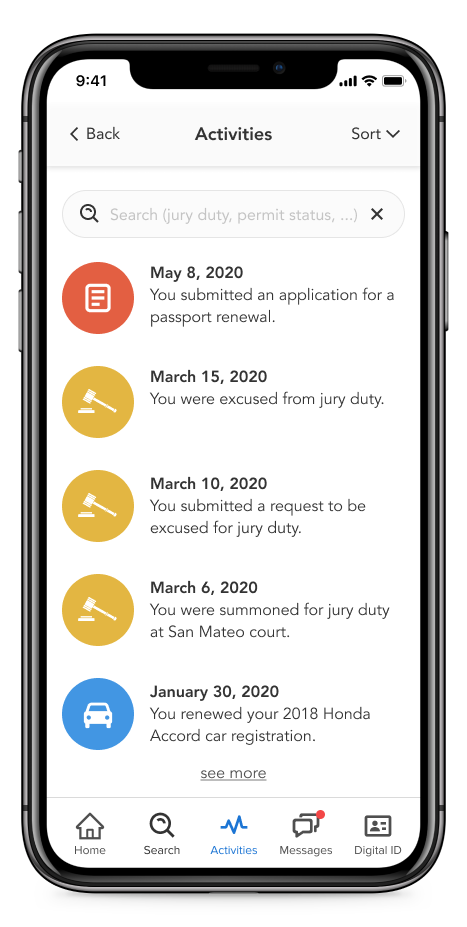the citizen network
The builder in me is convinced that there must be a better way of implementing our basic services.
My most annoying moments each year are renewing my car registration (which never seems to send to my address) or filing my food license (which for some reason takes week to get a response) - simple tasks that for sure reason just can’t get corrected. For those more dependent on the services, the amount of confusion on how to file for unemployment or get any healthcare question answered is just heartbreaking.
I created a Citizen Network that lets citizens better interact with government in hopes of fixing this. I tried implementing it, both thinking of angles to start and grow and attempting to get city and even state governments to adopt it ‘top down’… but the mix of local and federal laws needed to make change made it super difficult. I know there are many people who have dedicated their lives to improving government services. After going through this, I have more respect for you now more than ever!
Get your personalized action items.
Never get hit with a late fee again, with personalized to do lists.
FInd anything.
Find the information you need, from trusted sources
1-click applications.
Spend 20 seconds to unlock your public services, not 20 hours.
Message real people.
Just start messaging. The Citizen Network will route you to real people.
Stay in touch.
Get notified, only when things are important.
Control your data.
Verify your identity to unlock services, and delete any information you don’t want stored.
Convenience is just the start.
The Citizen Network can save you lots of time and frustration, but that’s just the start of how it will help you.
Imagine unemployment funding that is distributed automatically, digital stop signs that change based on accident data, automatically coordinated community watch groups, food subsidies based on demand data, and more. The Citizen Network is a story of good news.
And imagine this is all done in a uniquely private way. The Citizen Network allows no advertisements, keeps information private, notifies you as little as possible, audits all algorithms for fair use, and fully rethinks data security.
This is important.
Maybe your day begins with a cup of coffee. You get the clean water from the public water service. The water travels over pipes maintained as a public service. You’re assured the coffee beans are safe by a public service. The beans got to the store on roads created by a public service. The roads have lights operated by a public service.
We rarely think about our public services, but these invisible systems touch every part of our lives. From eating safe food to synchronizing our clocks, the most rudimentary human functions depend on a public network of underlying technical and social systems that we interact with constantly. We need to always improve these systems.






